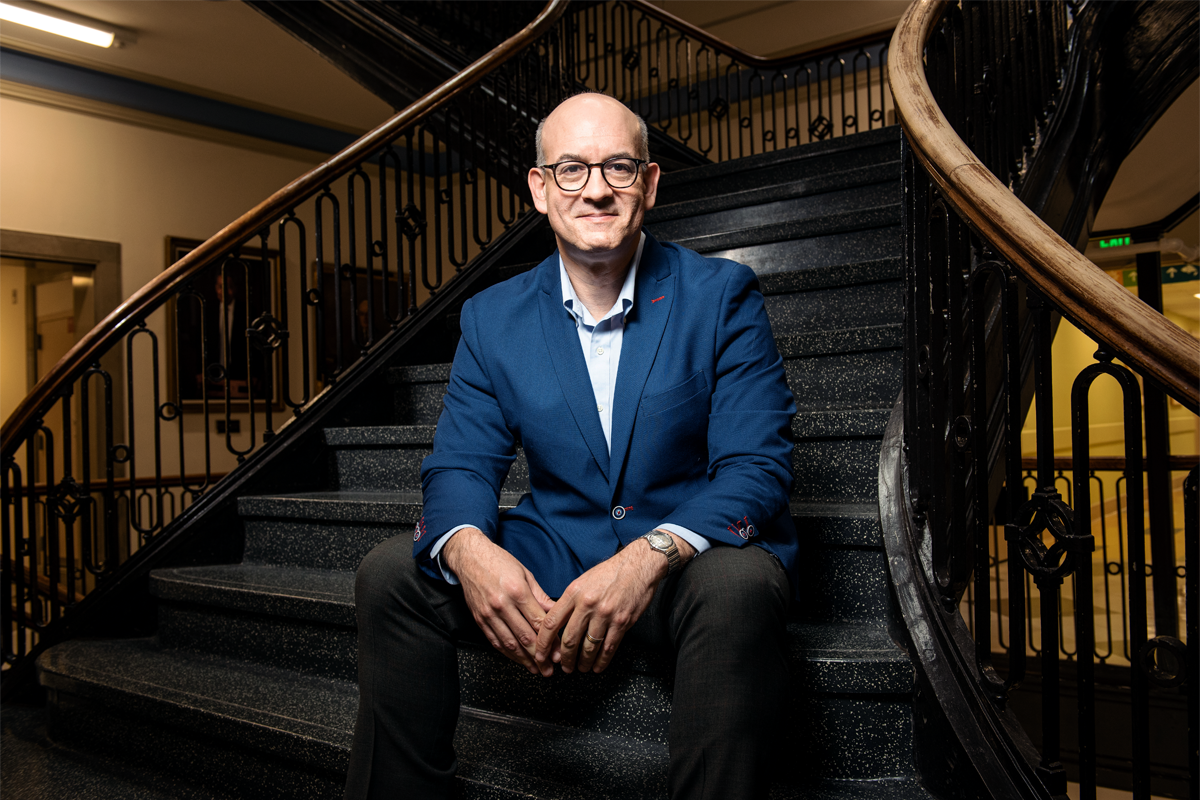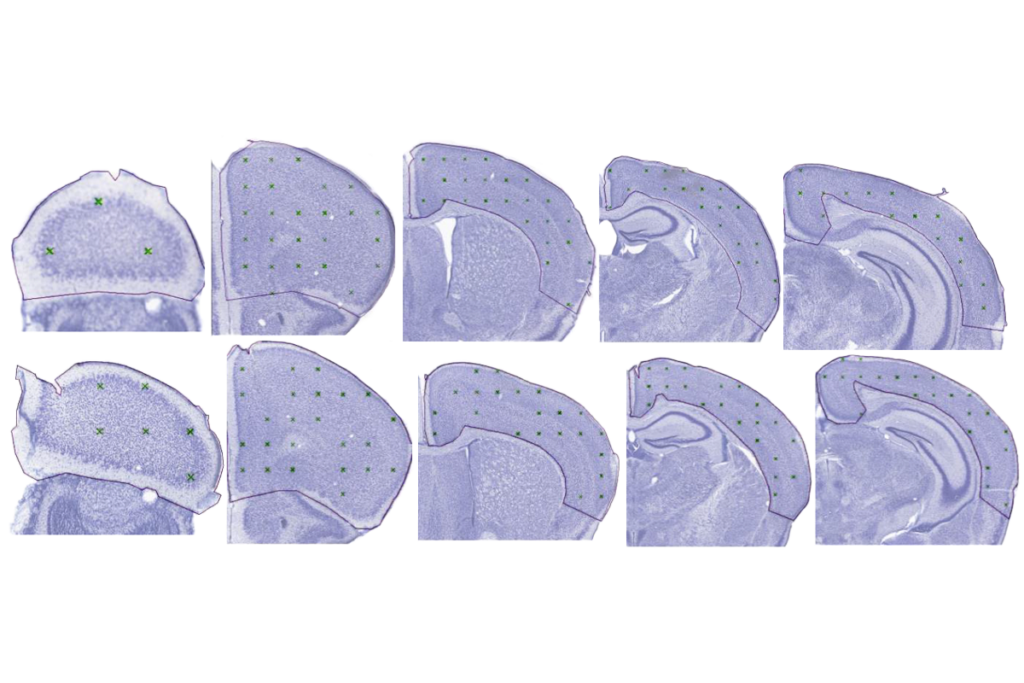The term “profound autism” describes autistic people who need around-the-clock supervision and support with activities of daily living. The Lancet Commission on the Future of Care and Clinical Research in Autism coined the term in 2021 to address the unique challenges and needs of a swath of the autism spectrum that is underrepresented in research.
But putting the definition to good use has proved challenging. Although the Lancet commission stated that most people with profound autism have intellectual disability, minimal language or both, researchers have relied almost exclusively on measures of cognitive and verbal abilities. What’s more, those measures vary dramatically among studies.
Measuring adaptive functioning—a person’s ability to carry out activities of daily living—would make it easier to compare findings across studies, says Matthew Siegel, chief of clinical enterprise in the psychiatry and behavioral sciences department at Boston Children’s Hospital. It would also highlight opportunities to support people with profound autism and their families.
To this end, Siegel is working with a large group of researchers, clinicians, autistic people and advocates to pin down the term “profound autism” and reach a consensus on how it should be measured.
The Transmitter spoke with Siegel about the process and why it’s so timely.
The interview has been edited for length and clarity.
The Transmitter: If profound autism is defined as needing support with activities of daily living, why are researchers relying on measures of intelligence and language ability rather than adaptive functioning?
Matthew Siegel: Perhaps out of convenience in terms of what data are readily available. The Centers for Disease Control put out a pretty important publication last year where they concluded that 26.7 percent of their sample would meet the criteria for profound autism. But they operationalized the definition using intelligence quotients and a measure of communication status. They didn’t use a measure of adaptive functioning.
This is important because in relying solely on measures of cognitive and verbal ability, we might be missing people with profound autism who can’t be left alone—people who have higher cognitive and verbal abilities but challenging behaviors, such as physical aggression or self-injurious behavior, for instance. Both of these are associated with low adaptive functioning.
TT: What data exist that support measuring adaptive functioning alone?
MS: We did a study in our Autism Inpatient Cohort, which includes more than 1,500 people. If we defined profound autism using a cut-off for IQ, a cut-off for communication ability or a cut-off for adaptive functioning, we found that 72 percent of the sample met the criteria. If you drop the IQ option, that percentage only went down a little bit, to about 70 percent. And if you drop the communication measure, it went down about the same amount.
Those findings suggest that adaptive functioning alone provides much of the information you would have if you used all three measures. And it keeps us focused on what I think matters the most, which is how people are functioning and what supports they need. IQ and measures of communication status don’t really get at this.
TT: How do we measure adaptive functioning?
MS: There are two widely used measures: the Vineland Adaptive Behavior Scales and the Adaptive Behavior Assessment System. They both cover the whole lifespan and are widely used in the field.
We did a recent analysis looking at 367 autism treatment studies between 1990 and 2013. We found that in the areas of IQ and of communication, researchers were using an unbelievable variety of measures—about 30 different measures for each. The one area where there was broad agreement was in adaptive functioning, where something like 90 percent of the studies used the Vineland.
TT: What does the Vineland measure?
MS: It includes very practical questions about a person’s ability to function in the world. They go from questions about being able to tie your shoes or dress yourself to things that are more abstract, like understanding the concepts of money or time.
TT: Does the Vineland overlap with measures of intelligence or verbal ability?
MS: There is a relationship between the Vineland and IQ measures, yes. And there is some direct overlap with communication, as part of the Vineland asks about communication ability.
TT: What are the next steps for the field?
MS: I’m part of a group that’s launching a consensus process using the Delphi methodology, a scientifically validated method for developing consensus around a question or an issue. That effort is launching in the next couple of months, and we’ll seek input from a wide range of people—clinicians, researchers, autistic people and advocates. I think it’s critically important to take this approach because it will lead to the best definition. If you have broad representation, the consensus you produce represents a broader group of people.
TT: Is there a consensus that profound autism is a category of autism that warrants special support?
MS: I think most people would agree there’s a group of people with autism whose needs, challenges and outcomes are distinct from those of the rest of the spectrum. A recent study looked at people with autism over three decades and found those with profound autism had different outcomes in almost every domain—employment, independent living, friendships and more. I think it’s reasonable to assume that if a group has very different outcomes, they likely need very different supports—very different interventions.
The spectrum is broad and important in its entirety. Different parts of the spectrum need very different kinds of support. Someone with profound autism might need to live in a residential treatment setting with constant access to an adult; or in their family home, they might need in-home services from behavioral health technicians who assist with activities of daily living.
TT: Are there other questions that need to be explored?
MS: We need to wrestle with the age at which we should use the term profound autism. The Lancet commission said it should not be used for children under 8 because cognitive and verbal abilities are not stable yet. But a recent study found that adaptive functioning prior to age 6 is highly predictive of your adaptive functioning at 13.
TT: Autism prevalence has increased. Is there evidence that the prevalence of profound autism has increased?
MS: We don’t know for sure. It’s clear that most of the rise in prevalence of autism over the past two decades has been in the non-profound group. There’s a number of reasons for that, not the least of which has been the diagnostic expansion of what autism is. I think most people would say there appears to be some increase in the prevalence of profound autism, but there’s a lot of debate about how much and what it represents.
It’s also worth noting there are fewer and fewer studies including people with profound autism. Between 1991 and 2013, the proportion of treatment studies that included this group dropped from 95 percent to 35 percent. And I don’t know for sure, but I think that trend has likely continued.
TT: There is evidence that early intervention can lessen the intensity of certain autism traits. Is this the case for profound autism?
MS: This is a key question, because we don’t just want intervention; we want targeted intervention. It’s a challenging question, too, because once something moves into the diagnostic lexicon, then you start interfacing with the world of health insurance in the United States. We don’t want to create a situation in which health insurers use the presence or absence of the term “profound autism” to approve or deny certain services for people. That’s not something we can control, but it’s certainly something we need to think about.





